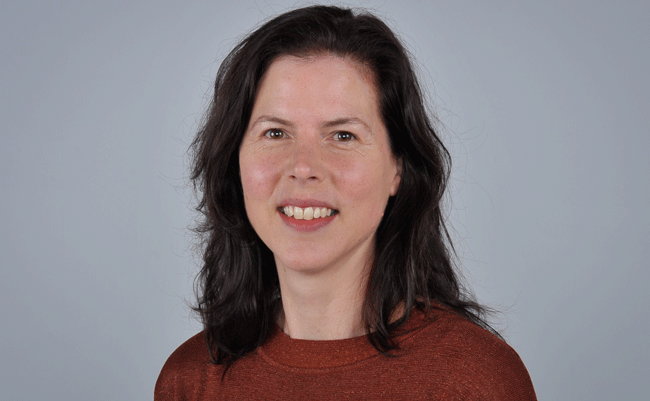Monday 9 December 2019 12:17pm

PhD graduate Jude Ball.
She didn’t quite manage to get ‘sex and drugs and rock and roll’ into the title of her PhD thesis, but researcher Jude Ball from the University of Otago, Wellington, came close, using the Ian Dury lyrics to introduce her first chapter.
Dr Ball, who graduated in Dunedin on Saturday, titled her thesis, 'Sex, drugs, smokes and booze: What’s driving teen trends?’ Her research looks at the reasons for the dramatic decline in adolescent risk behaviours in high-income countries over the last 15 to 20 years.
It was her primary PhD supervisor Professor Richard Edwards, the co-director of the ASPIRE 2025 smoking cessation research group, who initially suggested she examine the decline in smoking among adolescents.
... but in fact the research shows there is a positive correlation between the two, and that young people who spend a lot of time on digital media are more likely to smoke and drink."
“There was this very dramatic fall across all English-speaking countries in the early 2000s, and very little research into why … and then in the process of doing some initial looking into that, I discovered that drinking was also going down, which really surprised me. I thought, ‘well I wonder what else is going down’. So that led me to look at the picture more broadly.”
Dr Ball was confronted with quite a conundrum. She found many of the explanations of youth behaviour to be without foundation. One assumption, for instance that digital media use by young people had displaced risk behaviour, was not supported by the evidence at all.
“That hypothesis rests on the idea that more digital media means less drinking and smoking, but in fact the research shows there is a positive correlation between the two, and that young people who spend a lot of time on digital media are more likely to smoke and drink.”
The fact that alcohol use was declining among youth was also at odds with the impression she had gained from reading media reports of binge drinking.
“I think often young people get quite a negative press, and there does seem to be a perception that every generation of young people is worse than the last, but the evidence really doesn’t support that, at least in terms of substance abuse and sexual behaviour. Today’s teenagers are a lot more sensible than we were at the same age.”
Dr Ball was drawn to becoming a researcher by her natural curiosity, and a desire to figure out why things are the way they are.
“I remember when I was 10-years-old I pulled this book off my mother’s shelf called The Smith Women: 100 New Zealand women talk about their lives (by Rosemary Barrington and Alison Gray). And I think that planted a seed. I thought how fascinating it would be to talk to this wide range of people, and make some sense of the different patterns.”
When Dr Ball began work on her thesis, there was little in the way of published research on the decline in adolescent risk behaviour, and her work has attracted international interest.
One of the highlights of the three-and-a-bit years she spent doing the research for her PhD was the chance to meet international researchers working in the same area.
One of those opportunities came at a conference held in Poland earlier this year on the decline in youth drinking.
“It was just brilliant to be in a room full of researchers, all puzzling over the same conundrum,” she says.
Dr Ball also spent a month as a visiting scholar at Utrecht University in the Netherlands, which again offered a valuable opportunity to connect with others.
"I think there are some advantages to taking on a PhD in your forties. Even though some moments felt really challenging, I was able to draw on the knowledge that I had done difficult things in the past ..."
“Doing PhD research is always a bit isolating and the topic that I have chosen, there weren’t many others in New Zealand that were immersed in that research topic, so to meet with others internationally that also had the same research interests and similar disciplinary backgrounds was really stimulating.”
Having a team of PhD supervisors from varied backgrounds was also an advantage, she says.
In addition to support from Professor Edwards, she was able to draw on expertise from second supervisor Dr Hera Cook, a historian from the Department of Public Health, and from her tertiary supervisor, consulting biostatistician Dr Dalice Sim.
Dr Ball believes having a decade’s worth of research experience under her belt before she tackled a PhD helped her overcome feelings of self-doubt and struggles with procrastination.
“Those feelings are probably quite common in PhD students, and certainly I had times of struggling with those sorts of things, including ‘imposter syndrome’.
"I think there are some advantages to taking on a PhD in your forties. Even though some moments felt really challenging, I was able to draw on the knowledge that I had done difficult things in the past, and that I would be able to get through this as well.”
Dr Ball’s thesis, ‘Sex, drugs, smokes and booze: What’s driving teen trends? Describing and explaining trends in adolescent sexual behaviour, cannabis use, smoking and alcohol use in the early 21st century’ has been awarded exceptional thesis status. It can be read here.
